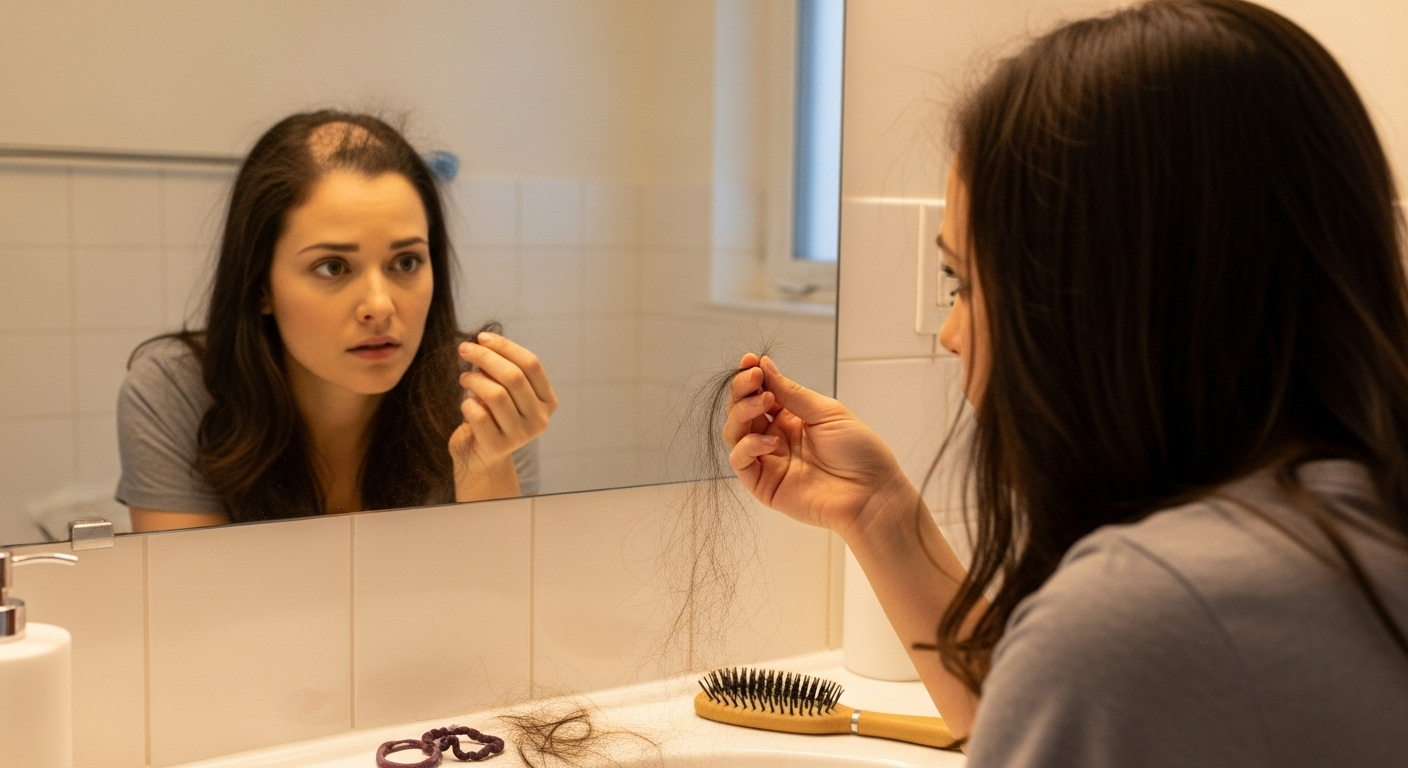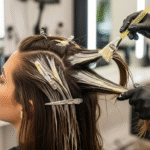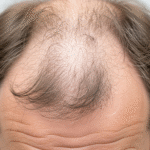Hair loss is a common concern after gastric sleeve surgery. The rapid weight loss and changes in nutrition following the procedure can often lead to shedding, especially around three to six months post-surgery. If you're wondering how to stop hair loss after gastric sleeve surgery, this article is for you. We'll discuss effective strategies like …
Hair loss is a common concern after gastric sleeve surgery. The rapid weight loss and changes in nutrition following the procedure can often lead to shedding, especially around three to six months post-surgery.
If you’re wondering how to stop hair loss after gastric sleeve surgery, this article is for you. We’ll discuss effective strategies like proper nutrition, supplementation, and gentle hair care to support hair regrowth and prevent further shedding. This guide will give you the tools to manage your hair health post-surgery with expert advice and actionable tips.

Understanding Hair Loss After Gastric Sleeve Surgery
What Is Telogen Effluvium?
Hair loss after gastric sleeve surgery is often due to telogen effluvium, a condition in which hair follicles prematurely enter the shedding phase of the hair cycle. This typically happens due to significant stressors, like rapid weight loss, nutritional deficiencies, and the physical toll of surgery. While this type of hair loss is temporary, it can still be distressing for many people.
It’s important to note that telogen effluvium is temporary, and most people see their hair begin to regrow within six to twelve months. However, implementing strategies to mitigate the shedding and promote healthy hair growth can significantly improve the outcome.
Duration of Hair Loss
Typically, hair loss starts around 3 months after surgery and peaks at about 6 months. As the body adjusts to the weight loss, hair shedding often slows down and regrowth begins. With proper care and patience, you can minimize hair loss and encourage the regrowth process.
Expert Tips to Prevent Hair Loss After Gastric Sleeve Surgery
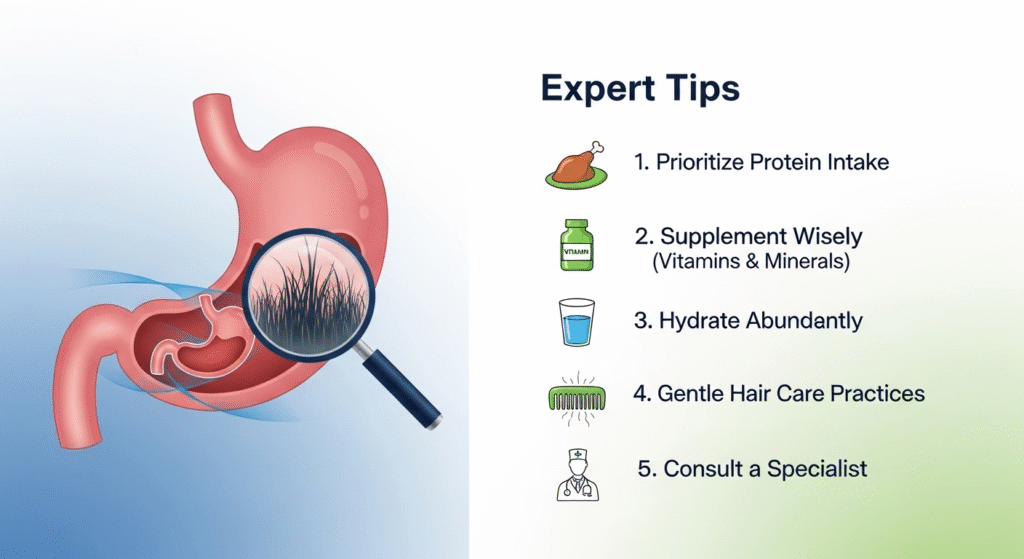
1. Prioritize Protein Intake
Protein is the building block of hair, and it’s essential for healthy hair growth. After gastric sleeve surgery, you may experience decreased protein absorption, which can negatively affect hair health.
Recommended Protein Intake
Aim to consume at least 60 grams of protein daily to support hair regrowth and overall health. Some excellent sources of protein include:
- Lean meats (chicken, turkey)
- Fish (salmon, tuna)
- Eggs
- Plant-based proteins (tofu, lentils, quinoa)
- Dairy (Greek yogurt, cottage cheese)
If you find it challenging to consume enough protein through food alone, consider adding a protein supplement to your routine. This can help fill nutritional gaps and support hair regrowth.
2. Supplement with Essential Nutrients
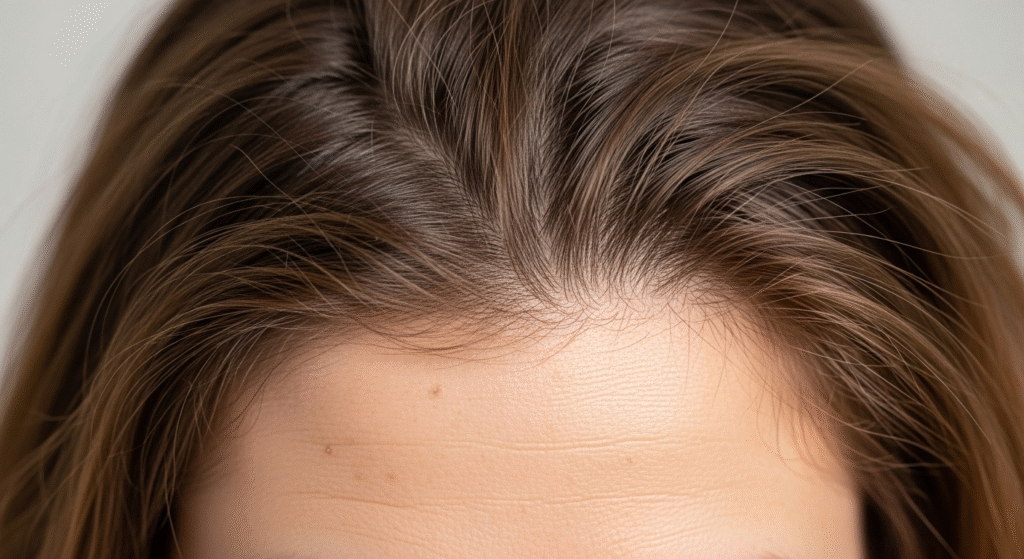
After gastric sleeve surgery, your body may have difficulty absorbing nutrients. It’s crucial to supplement key vitamins and minerals that are directly linked to hair health.
Key Nutrients for Hair Health
- Biotin (Vitamin B7): Supports keratin production and strengthens hair.
- Iron: Vital for delivering oxygen to hair follicles.
- Zinc: Aids in hair tissue growth and repair.
- Vitamin D: Helps regulate hair follicle cycling and growth.
- Vitamin B12: Supports red blood cell production, preventing hair loss.
Consult your doctor to determine the appropriate doses for these supplements, as they vary depending on individual needs.
3. Stay Hydrated
Dehydration can lead to dry, brittle hair, making it more prone to breakage and shedding. To keep your hair strong and healthy, ensure you are drinking enough water throughout the day. Aim for at least 64 ounces (about 2 liters) of water daily. Hydration supports bodily functions, including hair growth.
4. Avoid Stressful Hairstyles
Tight hairstyles such as ponytails, braids, and buns can exacerbate hair loss by causing traction alopecia, which is hair loss due to constant pulling. After gastric sleeve surgery, your scalp may already be sensitive, so it’s best to avoid tight hairstyles that put additional stress on your hair follicles.
Instead, opt for looser styles and give your hair a break from tight, restrictive hairstyles. It’s also wise to avoid excessive heat styling, which can further damage hair.
5. Gentle Hair Care Practices
Your hair is especially vulnerable after gastric sleeve surgery, so adopting a gentle hair care routine is essential. Here are some tips:
- Use sulfate-free shampoos: Sulfates can strip natural oils from your scalp, leading to dryness and breakage. Choose mild, nourishing shampoos that won’t dry out your hair.
- Avoid vigorous towel drying: Gently pat your hair dry instead of rubbing it, which can cause friction and breakage.
- Limit the use of heat styling tools: Heat can weaken hair fibers. Try air-drying your hair or using a heat protectant spray when using styling tools.
When to Consult a Professional

If your hair shedding continues beyond six months or becomes severe, it’s time to consult with a healthcare professional. A dermatologist or trichologist (a hair and scalp specialist) can perform tests to determine whether the hair loss is due to other underlying factors like hormonal imbalances, thyroid issues, or iron deficiency.
If necessary, your doctor may recommend additional treatments, such as Platelet-Rich Plasma (PRP) therapy, which involves using your own platelets to stimulate hair growth. They may also adjust your supplementation regimen or suggest topical treatments.
How Long Does Hair Loss Last After Gastric Sleeve?
Hair loss from telogen effluvium after gastric sleeve surgery typically lasts for about 3 to 6 months. As your body adapts to the rapid weight loss and improved nutrition, the hair loss will slow down, and new hair will begin to grow. For most people, full regrowth is noticeable within 9 to 12 months, but the exact timeline varies.
FAQ
1. Why Does Hair Loss Occur After Gastric Sleeve Surgery?
Hair loss occurs due to the rapid weight loss and changes in nutrition, leading to telogen effluvium, a condition where hair follicles prematurely enter the shedding phase.
2. How Can I Prevent Hair Loss After Gastric Sleeve Surgery?
Focus on getting enough protein and nutrients, stay hydrated, and adopt gentle hair care practices. Also, avoid tight hairstyles and limit heat styling to protect your hair.
3. Is Hair Loss After Gastric Sleeve Surgery Permanent?
No, hair loss after gastric sleeve surgery is usually temporary. With proper care and nutrition, hair regrowth typically begins within 6-12 months.
4. When Will My Hair Stop Shedding After Gastric Sleeve?
Shedding generally slows down after 3-6 months, and hair regrowth starts during this period. Most people see noticeable results within 9-12 months.
5. Should I See a Doctor If My Hair Loss Continues?
If hair loss persists beyond 6 months or worsens, it’s important to consult a healthcare provider to rule out underlying conditions like nutritional deficiencies or hormonal imbalances.
Conclusion
Hair loss after gastric sleeve surgery is a common side effect that many individuals experience, but it is typically temporary. By focusing on proper nutrition, hydration, gentle hair care, and essential supplementation, you can reduce shedding and encourage healthy hair regrowth. If shedding continues or worsens, seek professional advice to address any underlying issues and ensure the best possible outcome.
If you’re struggling with hair loss after gastric sleeve surgery, book a consultation with Dr. Uzma Irfan, an ISHRS-certified surgeon in Islamabad today. We’ll provide personalized advice and tailored solutions to help you regain your hair’s health and vitality.

